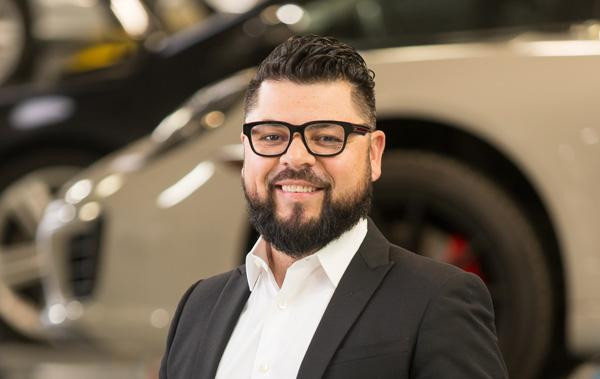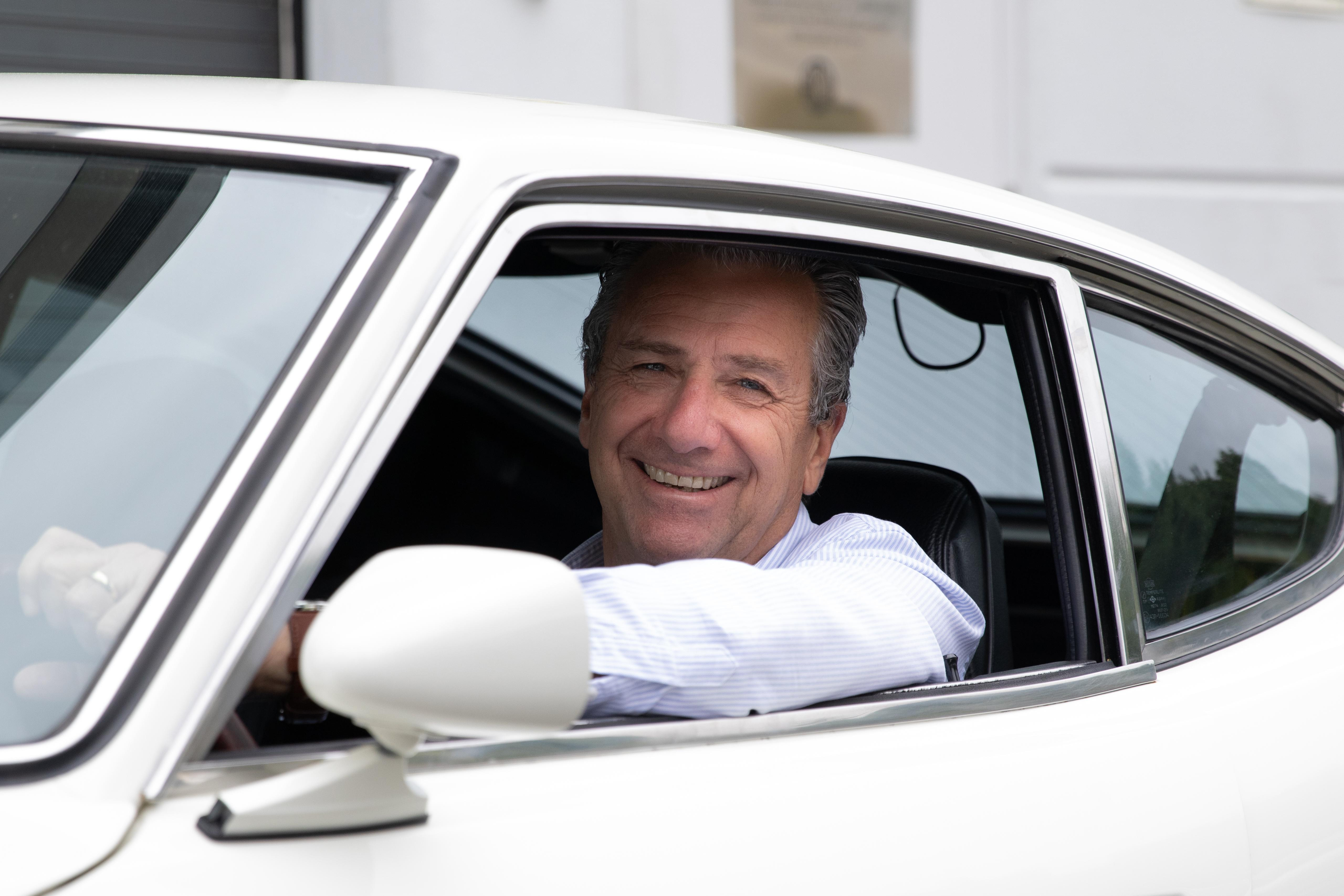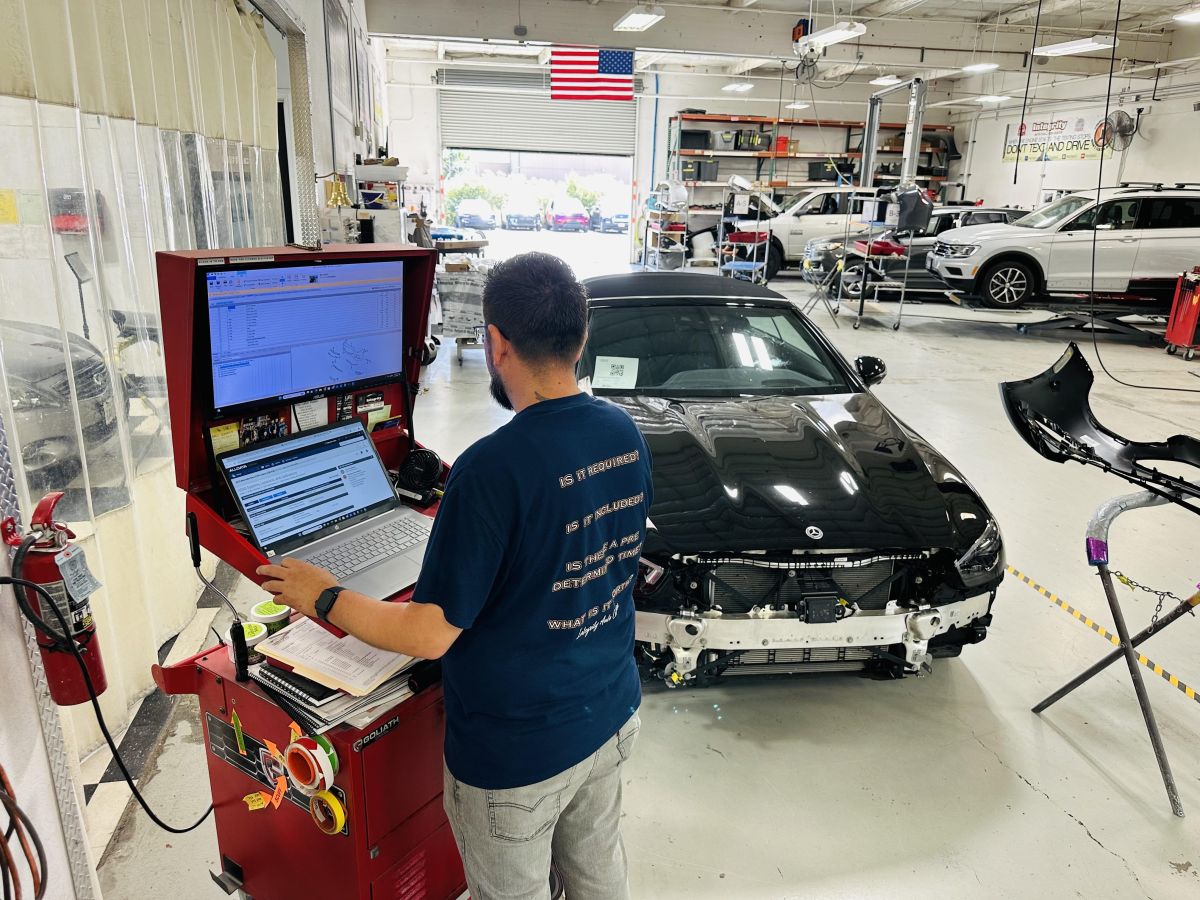California lawmakers are running for re-election, but not before they concluded a legislative session Aug. 31 that saw key bills affecting collision repairers, touching every aspect of operations.
Meanwhile, state agencies, notably the California Bureau of Automotive Repair (BAR), continuously craft industry-related rules carrying the force of law.
Gov. Gavin Newsom had until Sept. 30 to sign or veto bills. Days before the deadline, he vetoed key bills involving electric vehicles and ADAS technology. The first mandated battery recycling; the second required equipment affecting how fast Californians drive.
Below is a roundup of issues covered in law and regulation that are among the most important to body shops.
Autobody News research and material from the California Autobody Association (CAA) underpin what follows. We note if bills failed or passed, were vetoed or signed into law, and key regulations on the way.
Electric Vehicles
SB 615 would require electric vehicle batteries to be disposed of properly. Specifically, it says they must be "recovered and, when possible, reused, repaired, repurposed, or remanufactured, and eventually recycled," according to a state site on legislation.
The bill passed 62-5 in the Assembly and 33-1 in the Senate, on the last day of the session.
Despite the big majorities -- with 14 Republicans absent between the two final votes -- Newsom vetoed SB 615 the day before his Sept. 30 deadline.
In his veto message to the Senate on SB 615, Newsom said he agreed with the bill's intent, but he said the Department of Toxic Substances Control (DTSC), the agency tasked with writing its regulations, would experience "a significant burden...to implement the policy."
Newsom said "market-based solutions" create jobs, and suggested supporters "explore if a producer responsibility organization" might be a better choice "in sharing the administrative burden required by this policy."
The bill returns to the California Senate to consider overturning Newsom's veto.
If it does override, the DTSC by July 1, 2028, will write regs to "interpret and implement the law," said Jack Molodanof, a lawyer and lobbyist who works with CAA.
"We were actively engaged in this," he said.
EV makers are bringing more mid-priced models to market and buyers are warming to them as an option. More EVs, more batteries; more batteries, more recycling. Body shops and collision centers will participate in this, if the bill becomes law.
"It's important consumers are protected and that it's fair to the industry," Molodanof said, as regulations take shape via agency action and public comment. "It's big and complicated; this is new territory."
ADAS and Technology
Two bills aimed to enact laws involving Advanced Driver-Assistance Systems (ADAS).
The first, SB 1313, prohibits equipping vehicles with devices "designed for, marketed for, or being used for, neutralizing, disabling, or otherwise interfering with a driver monitoring system," and prohibits people "from using, buying, possessing, manufacturing, selling, advertising for sale, or otherwise distributing" such a device.
SB 1313 passed both houses unanimously, and Newsom signed it Sept. 25.
The second bill, SB 961, would require most vehicles, beginning with 2030 models, to have equipment that can discern speed limits, and notify drivers if they drive 10 miles over it. Exclusions for motorcycles, large trucks, emergency vehicles and cars lacking GPS were included, and carmakers could have offered alternative ways of signaling drivers.
"[SB 961] was amended several times," Molodanof said. "SEMA was actively engaged on this" as well. In March, SEMA released a study showing voter opposition to the bill. Its SEMA Action Network also issued a "legislative alert" to marshal opposition. The state Chamber of Commerce also opposed the bill.
SB 961 passed 47-17 in the Assembly and 26-9 in the Senate, with 20 legislators -- 18 of which were Democrats -- marked absent.
Newsom vetoed the legislation, citing federal vehicle safety standards and noting the National Highway Traffic Safety Administration is considering rules for such new equipment, according to the Associated Press.
Body shops would have seen repairs and calibration for the new "notification" equipment, had the law gone into effect. As it is, and based on SB 1313, they'll still need to deal with vehicles potentially arriving in-shop with ADAS-disabling equipment installed.
The state Senate could still consider an override of this veto as well.
"We follow [ADAS] bills," Molodanof said. "There's going to be more and more of these."
Training and Employment
Three bills that would have expanded technical education in the state didn't get out of committee.
AB 377 would have boosted annual career technical education funding 50% to $450 million, according to a CAA summary note.
AB 2273 would have established a paid internship program for high school students pursuing skilled labor jobs, with an initial $12 million appropriation.
AB 1927 would have expanded a state grant program for teachers to include people planning to work at least four years as technical education instructors. Molodanof said budget woes prevented the allocation of new money to programs. California in June enacted a budget for the coming year to close a $47 billion shortfall.
 Oscar Moreno.
Oscar Moreno.
Oscar Moreno, who owns Integrity Auto Collision Center in Fairfield, CA, employs a B-tech who graduated from the program at Contra Costa College in San Pablo. "It's a good opportunity for body shops to have [these techs], and we'd like to have more," he said.
Two bills -- one each in the Assembly (AB 2288) and Senate (SB 92) -- already signed by Newsom are aimed at addressing labor issues that have grown since 2004's Private Attorneys General Act (PAGA).
Since then, employee lawsuits against businesses have increased. CAA's summary said "bills address major problems in the law while protecting workers and limiting shakedown lawsuits that hurt employers."
The new law requires filing a complaint with state agencies first, before civil actions under PAGA can begin. If an agency investigates and finds citable issues, employers will have an opportunity to correct the problems.
Both bills passed unanimously and Newsom signed legislation into law July 1.
"This was a win for businesses in California," Molodanof said.
Also a win, he added, was the defeat of SB 1116, which would have provided unemployment benefits to workers who go on strike. Body shops aren't union shops but increases in unemployment benefits, Molodanof noted, "increases unemployment insurance costs for all employers."
The bill passed in the Senate but failed in an Assembly committee.
Emissions and Environment
SB 301 would have offered up to a $4,000 rebate for converting a gasoline-powered vehicle to a zero-emission one. It passed both houses unanimously but was vetoed by the governor June 14.
SEMA issued a press release the next day decrying the veto, given the existence of other, current state efforts, and saying the program would have created 149,000 new jobs and $40 billion in positive economic impact.
"SEMA is profoundly disappointed by Governor Newsom's lack of foresight in vetoing SB 301," SEMA CEO Mike Spagnola said in the release.
 Mike Spagnola.
Mike Spagnola.
California is also requiring all new vehicles in the state to be zero-emission by 2035, with staged milestones of roughly one-third by 2026 and two-thirds by 2030.
SB 903 would have banned products containing perfluoroalkyl and polyfluoroalkyl substances (PFAS). PFAS are used in many automotive products, including gaskets, shock absorbers and bushings, CAA said. The bill didn't get out of committee.
"This was important and there was a lot of opposition," Molodanof said. "I'm not sure what they'd have made products out of" if PFAS were prohibited.
Catalytic converters came up a couple times.
The final results included defining vehicle theft crimes to include parts or components, such as the converters. This bill, AB 2536, was passed and signed into law.
Failing, however, was AB 2188, which CAA had backed, and which would have let vehicle owners who have a catalytic converter stolen replace it with an EPA-compliant one, rather than a California Air Resources Board-compliant model.
Also failing were bills exempting 2024 model and later heavy-duty trucks from state emission standards if they meet federal ones; requiring disclosure of tobacco residue in used vehicles when sold and transferred; bringing the DMV and other agencies into "enforcement and compliance activity related to unlicensed and unregulated automobile dismantling" according to a CAA summary; and requiring businesses handling hazardous materials to report the release or possible release of the material to state agencies.
Regulatory Activity
Bureau of Automotive Repair
"Not just legislation but also regulation" affects body shops and collision centers, Molodanof said.
BAR is currently working in several areas touching the industry, according to CAA.
Citations and Fines: BAR "has increased the number of citations and fines issued to California automotive repair dealers," CAA said. Appeals conferences, conducted remotely before a panel of a public member, a BAR rep and an industry rep, are ongoing. Successful appeals remove the citation from the BAR website.
Vehicle Safety Systems Inspection: Licensing of VSSI stations and techs began in March; inspections are underway since July. The previous brake and lamp inspection program ended Sept. 27, and the DMV now no longer accepts these certificates of compliance for registrations. BAR will collect and refund unused certificates. VSSI information is available on the BAR website.
Storage Fees: BAR is proposing big changes to how body shops can charge for vehicle storage. Fees will under as-yet unadopted wording be based on various factors, keyed to area average rates, and would stay unchanged for one year. The next public comment hearing for this set of regulations is set for Oct. 17.
"Storage fee changes will have a dramatic effect," Molodanof said. "We expect changes but we haven t seen them yet, and we're working closely to address concerns."
Moreno expressed concern as a shop owner about vehicles declared a total loss that take up space until they can be disposed of.
"If that vehicle is taking square footage in our shop, it costs us," Moreno said. "We lose the opportunity to bring another vehicle in. If we don't get the chance to repair a vehicle, it matters."
The BAR is also revising current teardown disclosure requirements, Molodanof said. Body shops accepting payments for repairs from insurers will have to include that amount on the estimate.
"They've held workshops and no more are currently scheduled," he said.
BAR is now reviewing the rules.
"Customers often believe that other than their deductible, they won't have to pay additional amounts. But BAR wants them to know they might have to pay the difference," Molodanof said.
DTSC
DTSC is in the final stages of issuing new regulations to "raise hazardous waste disposal fees for auto body shops and other automotive repair shops," CAA said. Fee rates for the coming year are under review, according to California's Office of Administrative Law.
"Costs are going up," Molodanof said. For shops it "increases overhead, increases labor rates. They can pass it on to consumers, but it has to be related to the vehicle and can t be a profit center."
"The key for the body shop owner is to know what their fees are for, and work with someone who understands this," Moreno said.
He talked with Integrity Auto Collison Center's paint distributor, for instance, to determine related fees. They looked at average vehicle counts, how many panels get painted, costs per unit, and so on.
"We came up with how much to charge and why we're doing it that way," he said. "We can't just keep absorbing costs that keep going up."














Paul Hughes